54+ Sample Witness Statements
-
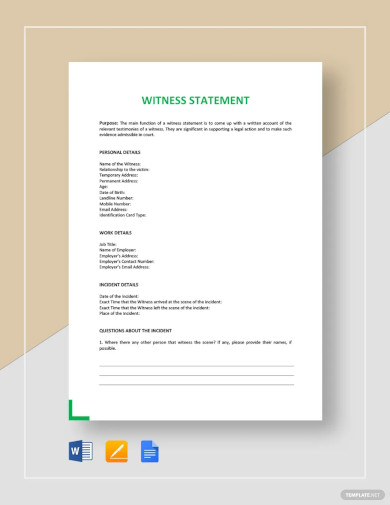
Witness Statement Template
download now -
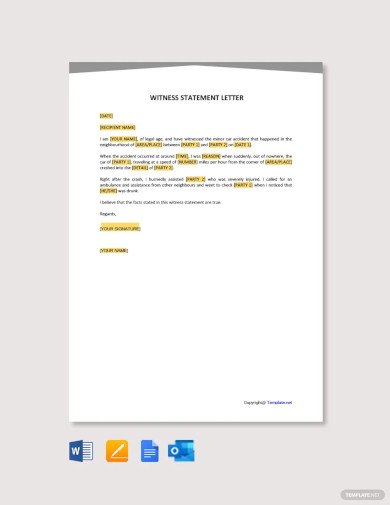
Witness Statement Letter Template
download now -
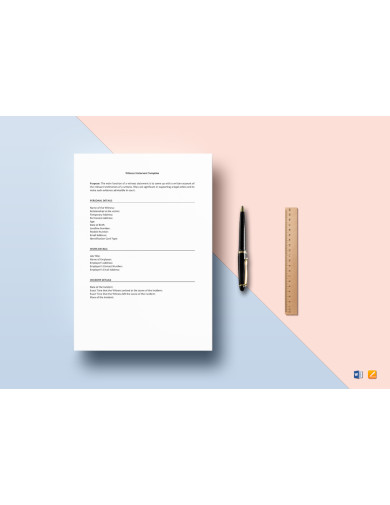
Witness Statement Template
download now -
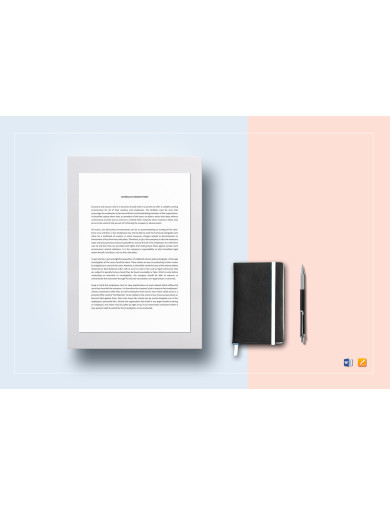
Simple Witness Statement Template
download now -
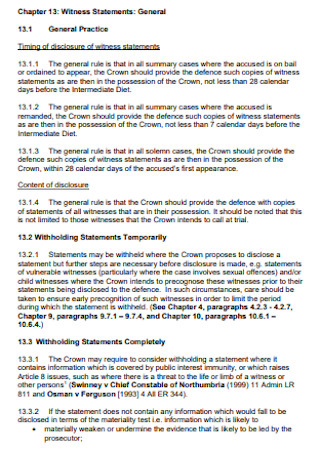
General Employee Witness Statement
download now -
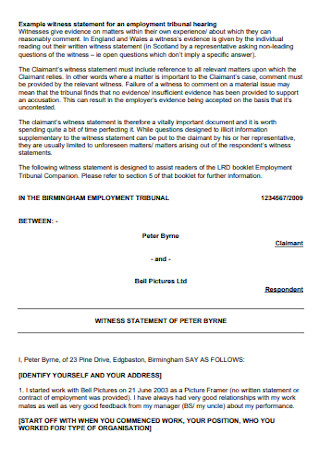
Written Witness Statement for Employment
download now -
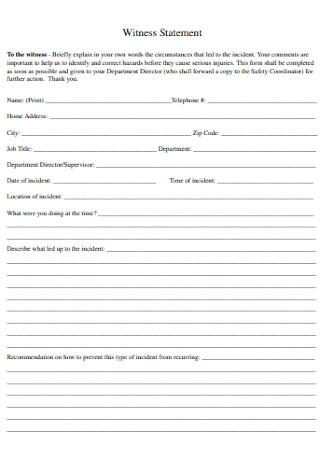
Witness Statement Letter Example
download now -
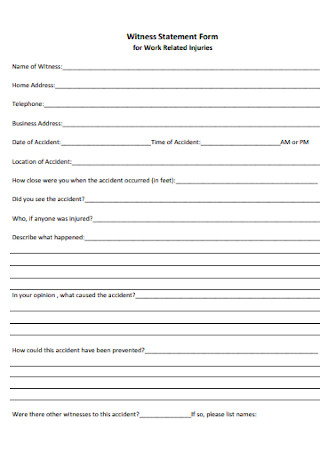
Workplace Witness Statement Form
download now -
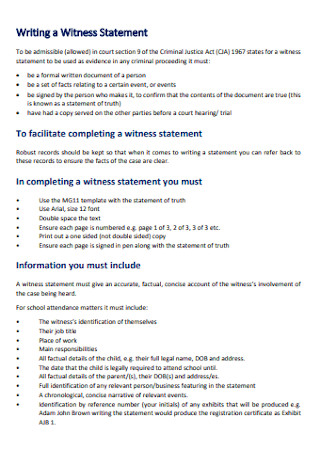
Writing a Child Custody Witness Statement
download now -
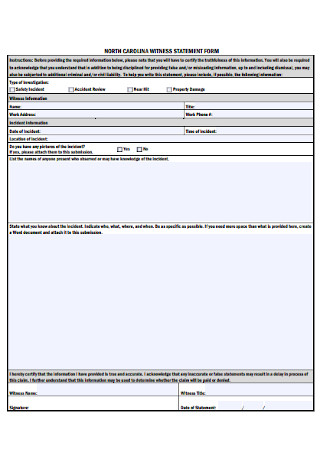
Witness Signature Statement Form Example
download now -
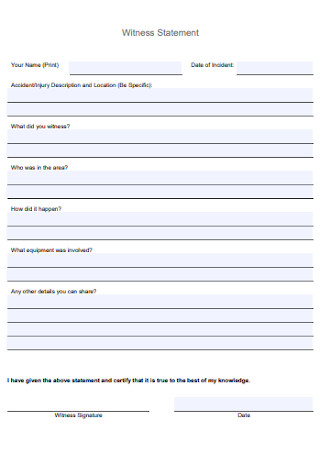
Witness Statement Employment Tribunal Format
download now -
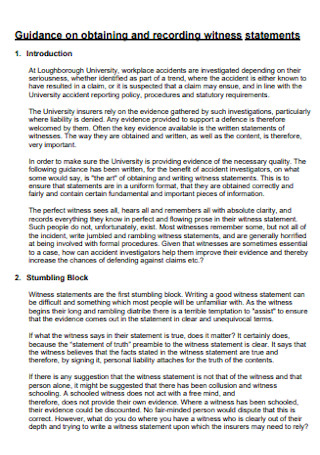
Recording Family Court Witness Statements
download now -
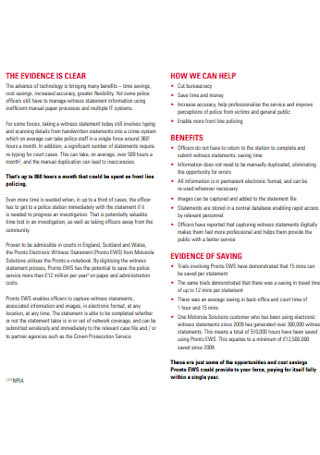
Electronic Affidavit Witness Statement
download now -

Simple Defendant Witness Statement
download now -
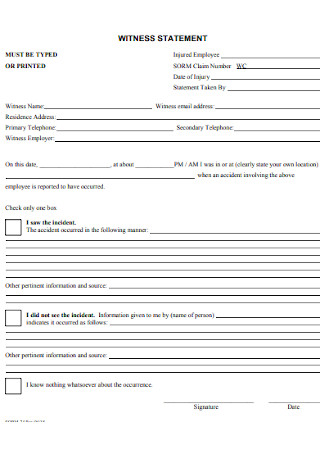
Office Management Character Witness Statement
download now -
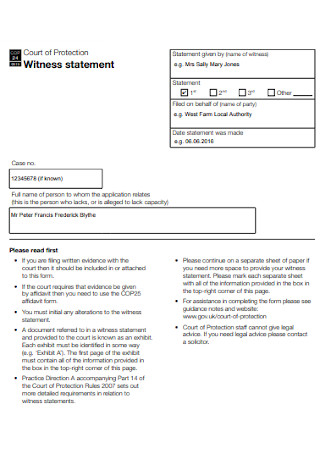
Court Door Supervisor Witness statement
download now -
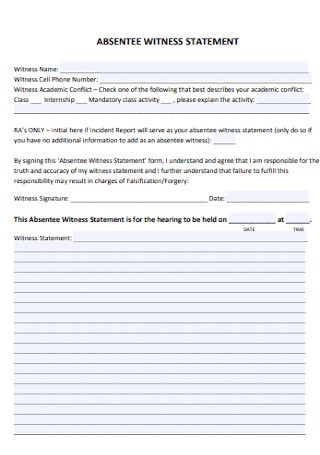
Absentee Claimant Witness Statement
download now -
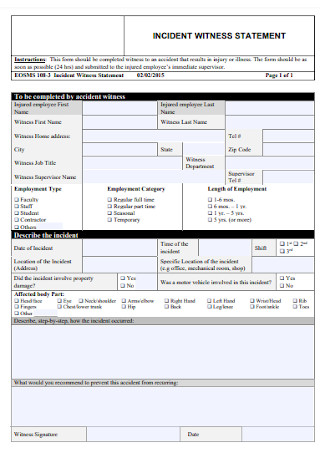
Incident Relationship Witness Statement
download now -
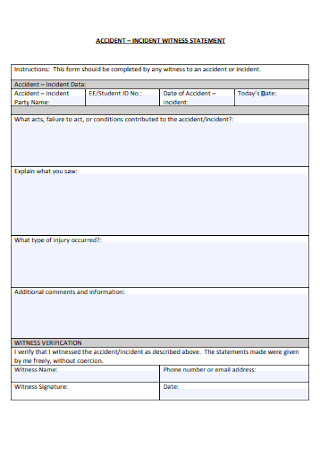
College Incident Document Witness Statement
download now -
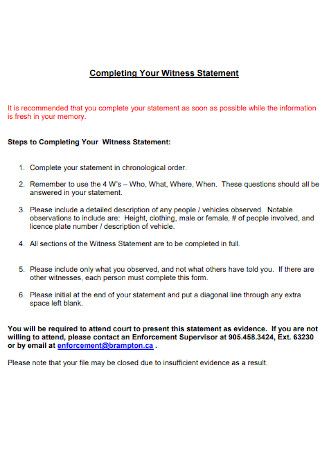
Corporate Crime Witness Statement
download now -
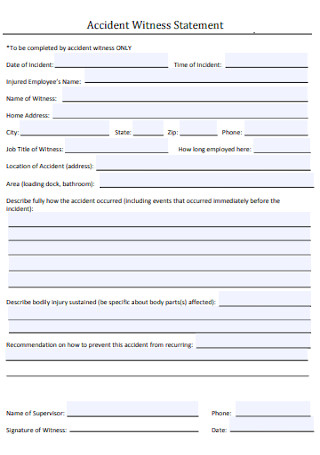
Accident Declaration Witness Statement
download now -
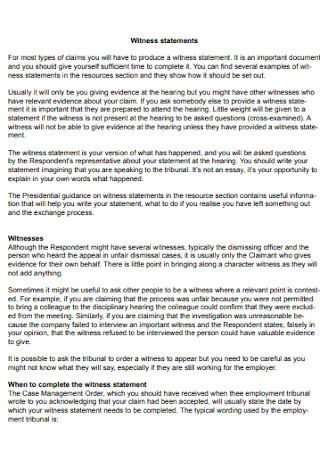
Basic Witness Statement Template
download now -
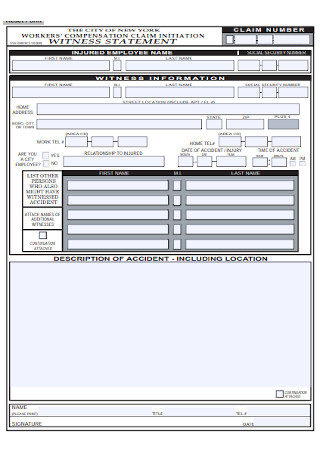
Workers Witness Statement
download now -
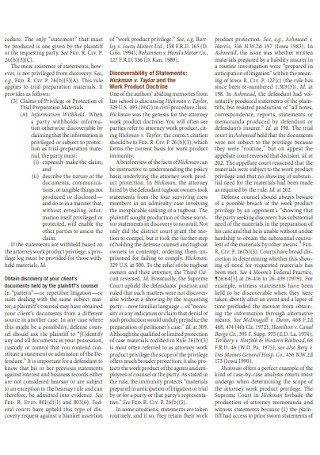
Witness Statements in Investigation
download now -
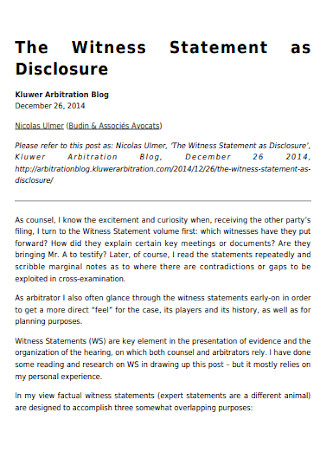
Witness Statement as Disclosure Template
download now -
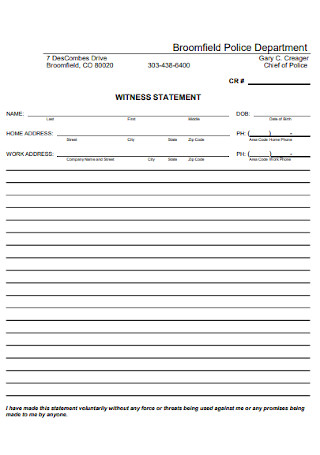
Police Department Witness Statement
download now -
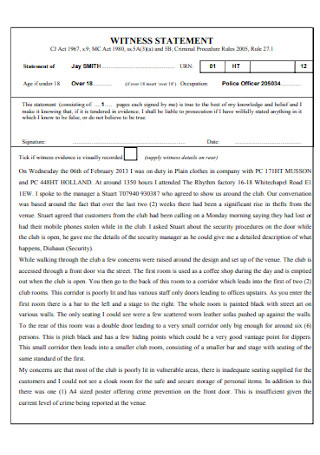
Formal Witness Statement Template
download now -
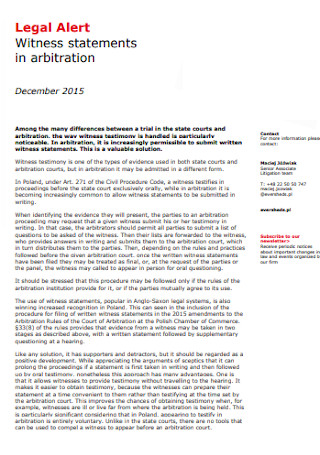
Legal Alert Witness statements
download now -
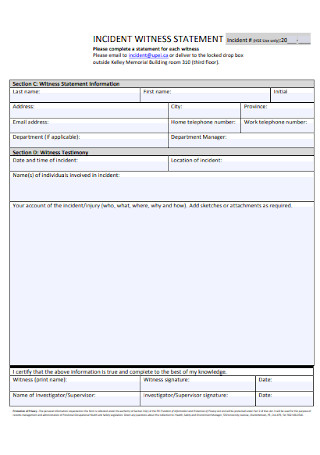
University Incident Witness Statement
download now -
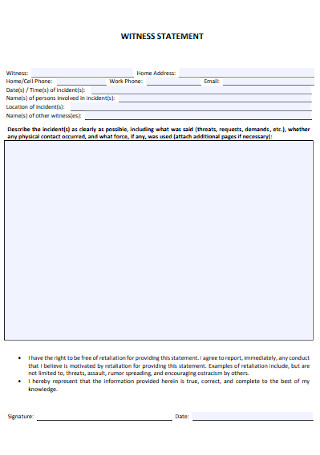
School Witness Statement Template
download now -
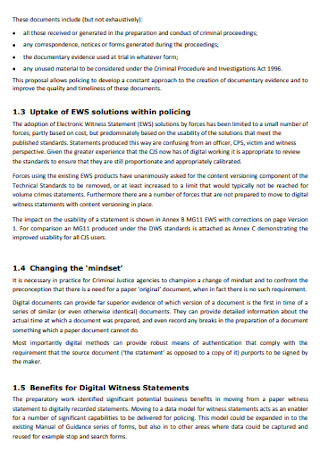
Digital Witness Statement Template
download now -
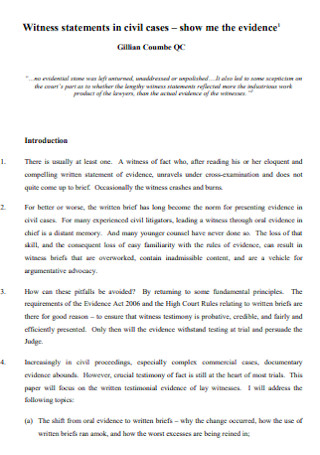
Witness Statements in Civil Cases
download now -
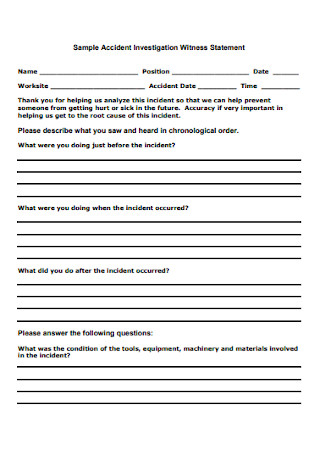
Accident Investigation Witness Statement
download now -
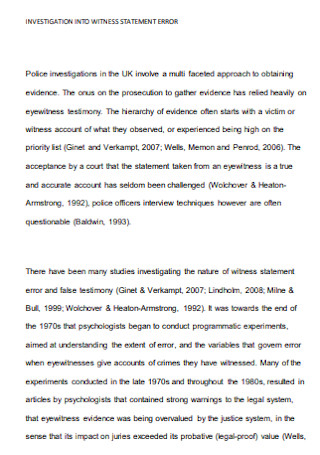
Investgation and Witness Statement
download now -
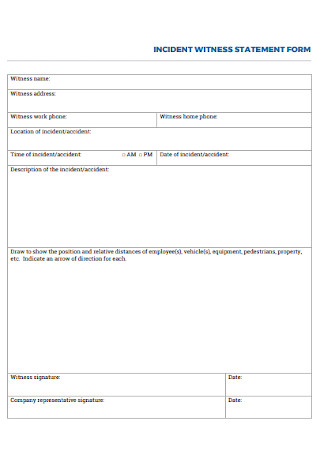
Incident Witness Statement Form
download now -
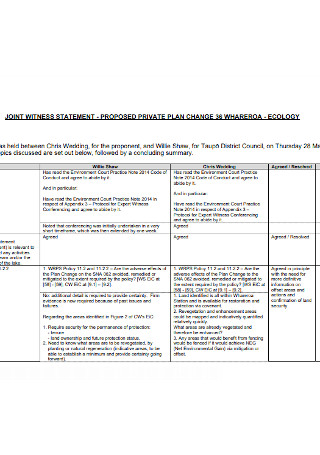
Joint Witness Statement Template
download now -
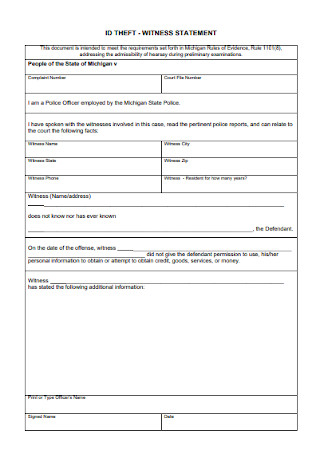
State Poliice Witness Statement
download now -
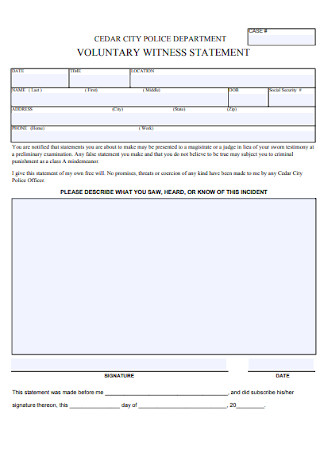
Voluntary Witness Statement
download now -
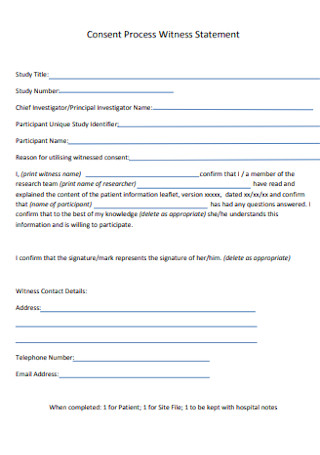
Consent Process Witness Statement
download now -
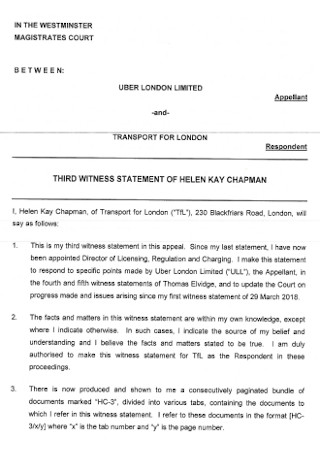
Third Witness Statement Template
download now -
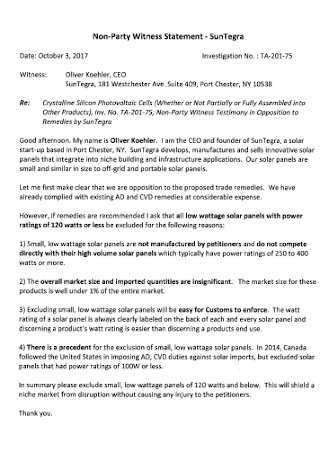
Non-Party Witness Statement
download now -
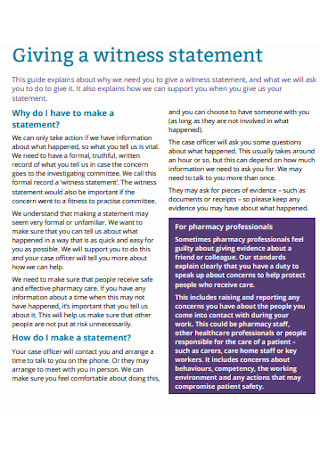
Council Witness Statement
download now -
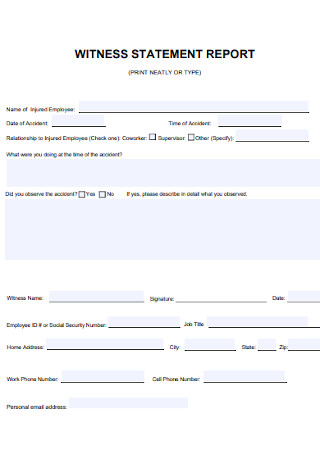
Witness Statement Report
download now -
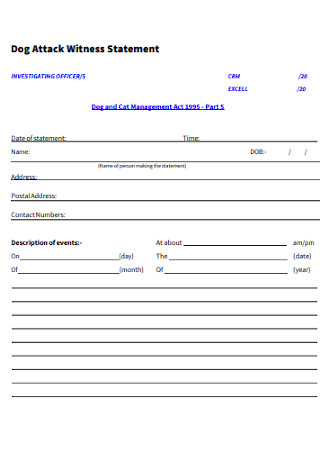
Dog Attack Witness Statement
download now -
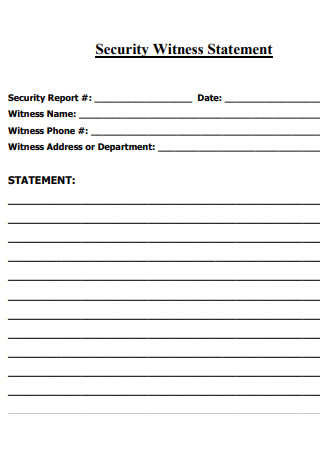
Security Witness Statement
download now -
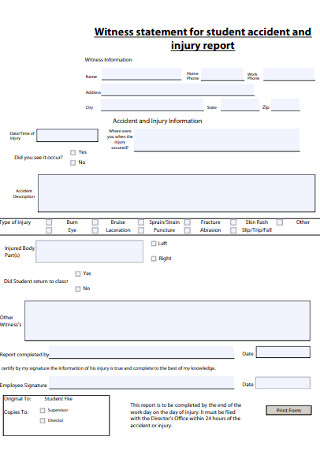
Witness Statement for Student Accident
download now -
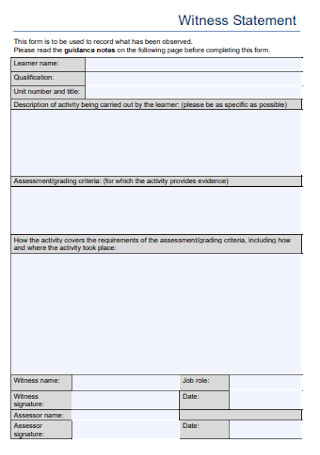
Professional Witness Statement
download now -
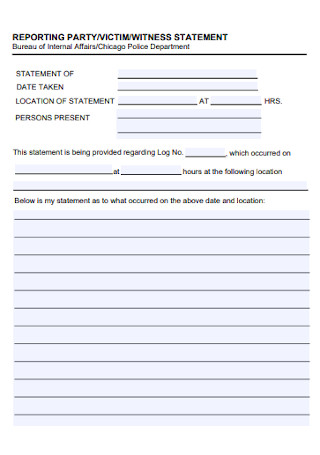
Party Witness Statement Report
download now -
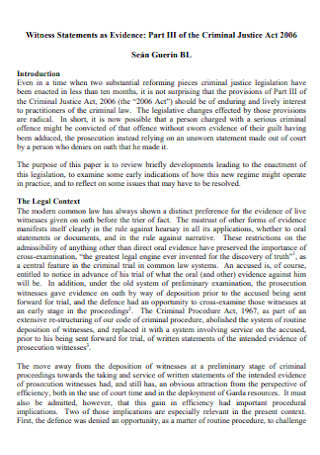
Witness Statements as Evidence Template
download now -
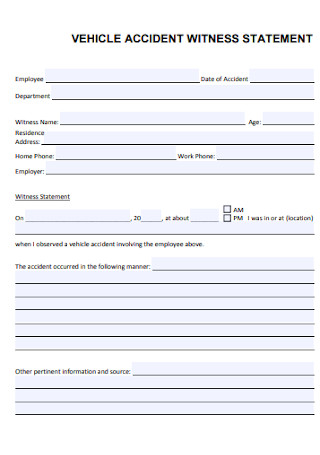
Vehicle Witness Statement Template
download now -
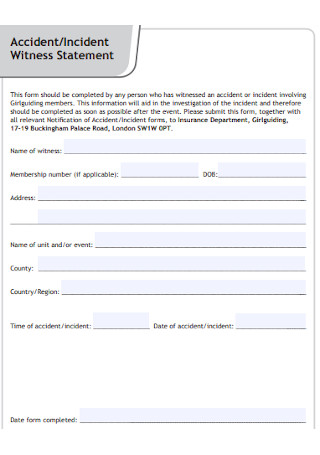
Accident and Incident Witness Statement
download now -
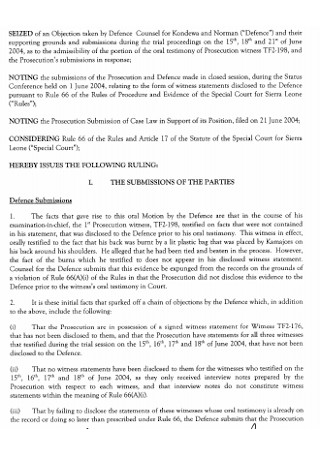
Decision on Disclosure of Witness Statement
download now -
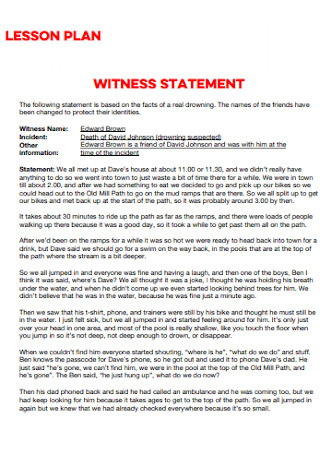
Witness Lesson Plan Statement
download now -
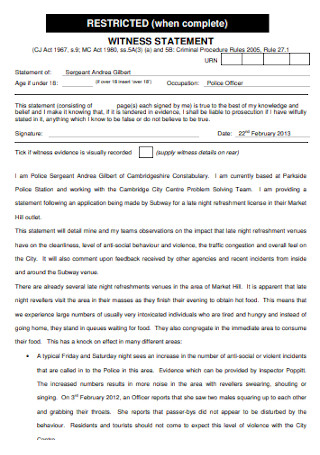
Restricted Witness Statement
download now -
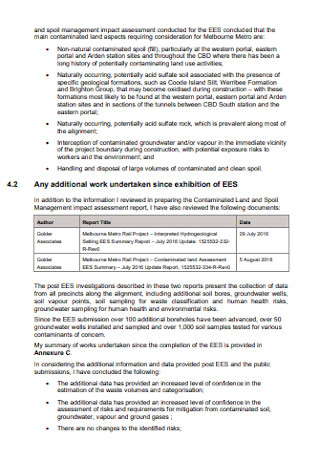
Project Witness Statement Template
download now
What Are Witness Statements?
A witness statement refers to the legal written document that covers all the information and accounts regarding incidents in a dispute. And a witness’s comments should stick to facts alone rather than sharing opinions. Thanks to witness statements, evidence will be recorded and the witness’s details could lead to winning a case in court.
According to the Government of the United Kingdom, there are three types of witness statements—narrative statements, production statements, and expert witness statements.
The Three Types of Witness Statements
It is known that there are three main types of witness statements. And it is important that you determine what type you are going for so you won’t mess up what to input in your written statement. So without further ado, here are the types of witness statements:
How to Make a Witness Statement
Take a look at the sample witness statements given above first. Those templates are your guide on how to create a witness statement shortly. There is even room to customize the details and print your output anytime. And for a proper introduction on how to ace your witness statement effectively, kindly follow these steps:
Step 1: Write the Basic Details
Don’t write about the evidence just yet because you will start your document with the basic info. This introductory statement refers to your name, address, contact details, occupation. The same goes for the case name and claim number. Most importantly, don’t forget to mention the witnesses’ details.
Step 2: Begin Writing the Evidence
Now for the meat of the statement, insert the witness’s evidence. The key is to be detailed but also understandable. Add only what is relevant for the case and prevent opinion-based information. Also, the events written will likely be arranged in logical order to avoid confusion. So ensure that the witness can give out which event happened first until last. Numbering paragraphs is one way to arrange.
Step 3: Swear to the Truth
A witness should state the truth and only the truth. Thus, an official sworn statement clause should close the witness statement. Similar to an affidavit, you can go with ‘I believe that the facts in this witness statement are true.’ But, be sure the witness is already confident enough with the details or a set of info given could be used against you.
Step 4: End with a Date and Signature
Just like in writing a formal letter, it should be signed at the very bottom. Writing the name in print with a signature on top is standard. Don’t forget to have the statement notarized and mention the date to clarify when it was made. Also, you may attach important documents and files for more evidence, especially if they would be useful in courtroom sessions.
FAQs
What is the difference between a witness and an expert witness?
A witness is simply any person who has evidence at a hearing. Meanwhile, an expert witness has professional knowledge about events, situations, or incidents that could prove or disprove evidence.
What is a statement of truth?
A statement of truth is found in the last part of the witness statement. And this closing statement officially mentions that the facts made by the witness are sworn true or precise.
How do you choose a witness?
A witness should be someone of great character, trustworthy, and knowledgeable to be credible. And what is most important is that the witness actually witnessed what happened that led to a dispute. That way, they have something essential to say during the hearing.
Indeed, a witness statement’s purpose is to give out concrete evidence that supports a party’s legal case. Although it can be one of the most potent tools to win a case, it could also be a weakness, particularly if the statement isn’t precise, comprehensive, or detailed. Allow sample witness statements to guide you in making solid evidence that surely pays off.
